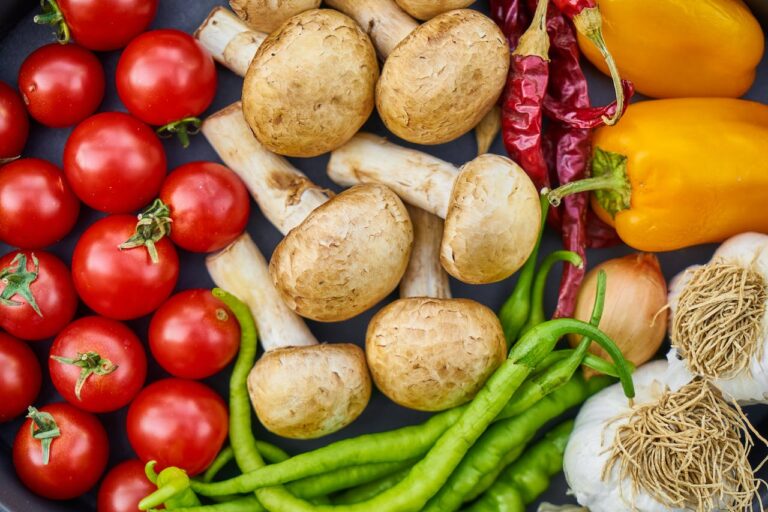Concussion recovery and nutrition are a two-way street. New research has shown that recovering from a concussion isn’t as straightforward as we were initially led to believe.
If you’re part of the 33% of people who are left dealing with chronic post-concussion symptoms, you understand the frustrations of being told that there’s nothing else that can be done for you by your doctors.
But that’s not the end of the story; it’s merely the beginning. We know far more than we used to.
Concussions, often resulting from sports injuries, accidents, or falls, are a type of mild traumatic brain injury that can affect your brain function and overall health. Common symptoms include headaches, confusion, visual changes, and balance issues. But we’re also realizing that mental health and digestive complaints are far more common than initially thought.
While rest and proper sleep are critical for recovery, we’re beginning to unravel the importance of diet and nutrition in concussion recovery.
The Role of Nutrition in Concussion Recovery
Nutrition is a powerful tool in the concussion recovery process. When your brain is healing after an injury, it inherently requires more oxygen, vitamins, and nutrients than usual. Eating the right foods and acquiring adequate nutrition can provide the brain with essential building blocks for repairing injured brain areas, controlling inflammation, and optimizing blood flow.
Here’s a quick list of the essential foods and nutrients needed for concussion recovery and nutrition support:
Omega-3 Fatty Acids (Fish Oil): These fats, found in fish like salmon, olive oil, and flaxseeds, are vital for brain health. They help support healthy neurons, repair damaged brain cells, and even reduce inflammation.
Numerous studies have shown their positive impact on brain recovery and overall vitality before and after an injury. These fats are also essential for repairing cell walls, optimizing mitochondrial function, and improving cellular signaling.
Fibrous Fruits and Vegetables: Fruits and vegetables like blueberries, blackberries, green leafy vegetables, and avocados are full of high-quality fiber and healthy fats. Fiber is a critical factor for healthy aging and longevity. It’s also a vital component of food for our microbiome, the trillions of bacteria that live inside our intestinal tract.
These beneficial bacteria are essential for breaking down our food into healthy compounds that heal our gut, brain, and body. Following a concussion, gut and brain barriers can become compromised, exposing us to pathogens and inflammatory processes that can affect the brain and body.
Fiber is essential to healing the gut and brain for successful concussion recovery after an injury.
Magnesium: Magnesium is required for over 300 enzymatic processes throughout the brain and body. Although 50% of it is stored away in bone, it plays a vital role in brain function and neuron energy production, especially after a concussion.
Magnesium can be found naturally in foods such as vegetables, nuts, seeds, fish, fruits, and meats. Sadly, 12-25% of the healthy population globally is deficient in magnesium due to unhealthy lifestyles, inflammation, and poor diet.
Hydration is Key for Concussion Recovery
Water is essential for proper brain function and healing, especially after a concussion. Your brain is estimated to be 73% water, which means that hydration status can have a significant impact on brain function.
Research has established that dehydration can worsen self-reported concussion symptoms like visual changes, fatigue, cognitive focus, and even headaches. Simple hydration measures like drinking 6-8 glasses of water a day are crucial to maximizing your chances of concussion recovery.
Foods to Avoid After a Concussion
Just as some foods can aid recovery, others can hinder it. Processed foods, high in sugar, refined flour, and unhealthy fats, can increase inflammation, impede healing, and significantly affect blood sugar levels throughout the day.
And since the brain is in a compromised metabolic state following a concussion, balanced glucose levels and adequate nutrition are essential ingredients for healing.
Caffeine may also negatively affect sleep patterns and brain health during recovery depending when used. It’s generally safe to consume in the morning, 60-90 minutes after waking, and consumed before noon.
It’s important to completely avoid alcohol due to its toxic effects on the brain, gut, and liver.
Concussion Recovery and Nutrition Are Essential For Healing Your Brain
As you can see, concussion recovery and nutrition status are important factors for healing after a head injury. Recovering from a concussion can be a challenging process, but incorporating a brain-healthy diet can make a significant difference.
Remember, every concussion is unique. It’s essential to work with your healthcare provider to create the best recovery plan for you.
At The Neural Connection, we’ve worked with hundreds of concussion cases and have had great success in helping recovery from their injuries. As a result, we’ve acquired 88+ 5-Star Google Reviews from satisfied patients who are now living their best lives after a concussion.
When you’re ready to chat, we’re here for you! Just click the link below to schedule your consultation.
Click here for a FREE 30-Minute Consultation
And if you’re still seeking answers to your concussion questions, we’re here to help!
*Note: The information provided in this article is for educational purposes only and does not constitute a doctor-patient relationship. Patients are advised to consult their medical provider or primary care physician before trying any remedies or therapies at home.

